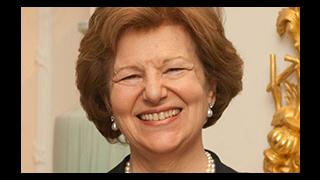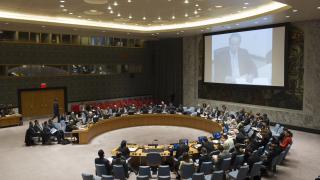
As a marginalised group which suffers disproportionately during conflict, the empowerment of women is not only important to gender equality but also essential for international peace and security. In peacebuilding settings, it’s paramount that their voices are heard.
Women often bring a different agenda to peace process negotiations, tending to adopt a broader definition of peace which includes economic empowerment, individual rights and freedoms, education, healthcare and freedom from violence. Excluding them ignores a rich repository of knowledge, experience and innovative approaches.
Unfortunately, women also face disproportionate barriers to participation in peacebuilding. Restrictive social norms and negative attitudes, economic inequality, lack of land rights and access to education all constrain the role women can play in the pursuit of peace.
UN support for women in peacebuilding
The last decade has seen an increased focus on tackling this issue. UN Security Council Resolution 1325 (2000) was seen as a landmark moment for women in peacebuilding. This was followed by more resolutions and Presidential statements throughout the 2000s.
In 2010, the UN Secretary-General released a 7-Point Action Plan for women’s participation in peacebuilding, and in October 2013, the adoption of Resolution 2122 committed the UN to conduct a high-level review of Resolution 1325 in 2015.
But have these international commitments translated to real changes? There has been notable progress in terms participation in a number of negotiations. A report from UN Women shows that women made up 33 per cent of signatories to the 2011 Oslo Joint statement regarding the Philippines, and similar numbers participated in the intra-state Tegucigalpa/San José accord in Honduras.
Nevertheless, statistics can mislead. Participation doesn’t necessarily mean influence: women’s participation is often symbolic and their contributions are frequently under-recognised. Assistant Secretary-General for Peacebuilding Judy Cheng-Hopkins puts it succinctly: “When negotiations turn serious, when the stakes are high and when money shows up, women are pushed into the background”.
What’s more, much of peacebuilding’s main work takes place beyond the negotiating table. Concentrating on the national level risks obscuring the vital importance of women building peace in their own communities.
Women peacebuilders at the local level
Women have long been influential peacebuilders at the local level. For example, a case study from UK-based NGO Conciliation Resources shows that women in Northern Uganda made significant contributions to conflict prevention and reconciliation, engaging in peace education within communities and helping to reintegrate ex-combatants.
Local level activity isn’t just important for its own sake – a meaningful connection between local and national processes is vital for achieving sustainable peace. Women’s civil society groups should be connected to all levels of decision-makers and post-conflict architecture. A recent study from NGOs ActionAid, Womankind Worldwide, and the Institute of Development Studies highlights the importance of building peace from the household to the community level, before it can be achieved nationally.
Unfortunately, in the same study, many women many expressed concern at the disconnect between national level negotiations and the community. Women peacebuilders in Nepal, Afghanistan, Liberia and Sierra Leone all protested at the lack of space for community peacebuilders to engage with the formal peace process.
What can be done?
As governments and the UN look to assess progress on Resolution 1325, there must be rigorous consultation with women’s groups and civil society. Strategic partnerships between women’s rights organisations and women in political parties, parliament and government are crucial. The UN must promote these links and the connecting role of the wider NGO community.
Sustained support and long-term investment is also needed for change at the local level to influence national peace processes. Womankind Worldwide advocates for states to match the UN benchmark of 15 per cent of conflict funding for women specific needs, and calls for donors to demand demonstrable women’s rights outcomes.
We need to find the right balance between top-down and bottom-up peacebuilding. High-level participation in post-conflict governance is undeniably important, but truly inclusive and effective peacebuilding means incorporating the views and priorities of women peacebuilders at all strata of society.
Tom Clarke is Communications & Social Media Intern at UNA-UK. You can follow him on Twitter at @tomclarke303.












